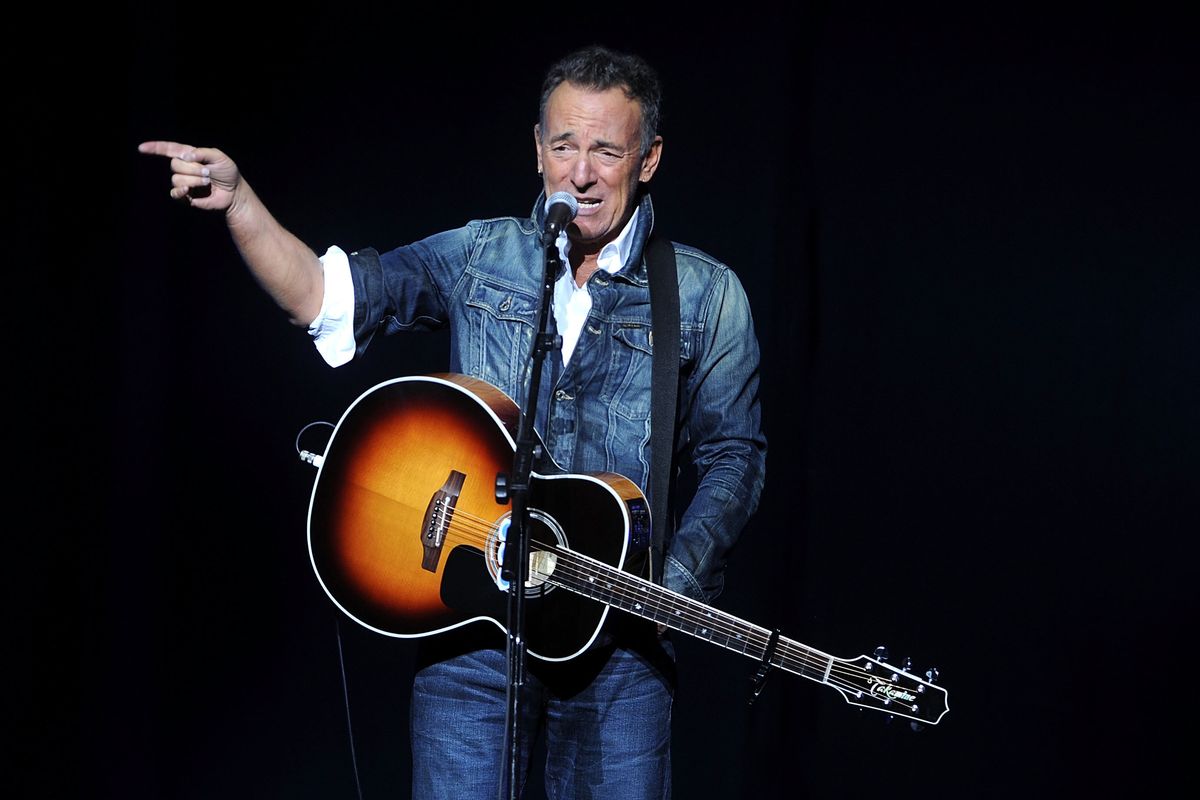Straddling the fence: How do you reconcile loving an artist but loathing their politics?

The roar from the crowd when Bruce Springsteen spoke in between songs during his “Vote for Change” show in Philadelphia 16 years ago sounded unfamiliar.
The Boss is often serenaded with the buzz of “Bruuuuuce!” when he performs. However, it sounded a little different. Fans, who cheered during songs such as “Born in the USA” and “Badlands,” actually booed the New Jersey icon when he would wax about how important it was for America to move in a different direction.
Can fans love a recording artist’s music but hate their politics? How can diehard fans, who pay triple digits for tickets, turn on their favorite artists after a message is delivered that doesn’t jibe with their beliefs?
Muhlenberg College political science professor Chris Borick, who teaches a writing class titled “Springsteen’s America,” believes it’s not as odd as it sounds for fans to compartmentalize. The academic, who has presented Springsteen symposiums, is certain that most people can be drawn into Springsteen’s material.
“If you want a song to escape with, there’s ‘Glory Days,’ and there are plenty of songs that are really deep,” Borick said while calling from his Nazareth, Pa., office. “Springsteen has something for everyone, and that’s why he’s in another stratosphere.”
Springsteen’s appeal to both sides of the fence is evident. The Boss doesn’t craft overtly political songs, but a number of his tunes are clearly left-leaning such as “American Skin (41 Shots),” “The Promised Land” and “The Ghost of Tom Joad.” When Springsteen toured in 2012, he performed “This Land Is Your Land” in honor of its author and perhaps his greatest influence, Woody Guthrie, who was born in 1912.
But as Borick notes, the gifted bard connects with right-wingers courtesy of his writing style. “His language and tone and accent come across in ways that appeal to conservatives,” Borick said. “His writing reflects complex patriotism.”
“Born in the USA,” which Borick’s student’s analyze, is an excellent example since if the song is consumed in a superficial manner, it sounds like an anthemic flag waver. However, upon a closer look, it’s obvious that the rousing tune, which helped catapult Springsteen to stadium-headliner status, is a scathing indictment of the Vietnam War and the treatment of the veterans who served.
Borick notes that some of Springsteen’s fans just want to hear the lighter, celebratory songs and not deal with any trace of the political.
That’s how Spokane’s Dick McDougall, a longtime Springsteen fan, likes to play it. “If a recording artist is talented and creates great music like Bruce Springsteen, that’s way more important than their political stance,” McDougall said while calling from his home.
“Springsteen is really good, and the E Street Band is great, but when a musician throws his political view out there, there’s a bit of taint there for me. I feel the same way about Neil Young. I love Neil, but I can do without the other stuff.”
It’s not about picking a political side for McDougall since he feels the same way about arch-conservative rocker Ted Nugent, who is very vocal about his beliefs.
“Ted Nugent is way over the top (with his political views),” McDougall said. “I’m a big fan of his like I’m a big fan of Bruce and Neil. I remember seeing Ted (at the Spokane Arena in 1980) swinging from a rope like he was Tarzan. He put on a great show. I even saw Ted speak to bowhunters at the General Store many years ago. That was interesting. But what I really enjoy is their craft. Give me their music. I would love it if I didn’t know how they leaned politically.”
McDougall would like comic Jay Leno’s approach. The former host of “The Tonight Show” has never revealed his political views.
“That’s true, but a lot of people don’t see it that way,” Leno said while calling from his Los Angeles home. “Everyone has to know your politics these days. I didn’t go that route. I followed what (iconic “The Tonight Show” host) Johnny (Carson) did. I would joke about both sides of the fence. I got hate mail from Republicans and Democrats.
“When that happened, I knew I was doing something right. People thought I hated the Clintons, and people thought I hated the Bush family. I was just doing my job.”
And then there is Steven Van Zandt, who a generation ago was the most political recording artist in rock.
“There was no way you could like my music if you didn’t like my politics,” Van Zandt said. Van Zandt’s views were so important to him that he amicably left Springsteen’s E Street Band just after the release of “Born in the USA” in 1984, which was when the Boss was becoming a superstar.
Van Zandt, who starred in “The Sopranos,” was compelled to create edgier music. The New Jersey singer-songwriter crafted “Vote That Mutha Out,” which was directed at President Ronald Reagan in 1984. Van Zandt took it further with his all-star recording project Artists United Against Apartheid. The anthemic single “Sun City,” which included Bob Dylan, Tom Petty and Joey Ramone, among other luminaries, charted. Political solo albums such as “Freedom No Compromise” and “Voice of America” followed.
Van Zandt is liberal as ever, but he doesn’t believe pontificating will unite America. He thinks that some great songs can bring people together.
“Music is the great common ground,” Van Zandt said while calling from his New York City apartment. “We can’t be any more divided than we are now.
“So let’s put the political aside and get together with music. Regarding Bruce being booed during the ‘Vote for Change’ tour, you can’t reason with people anymore. People have become so fanatical about their beliefs, so let’s leave it at that and unite with what we love, which is music.”